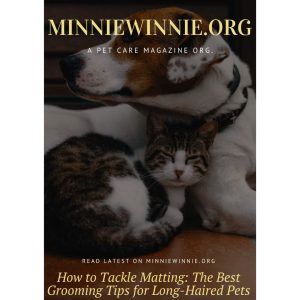Wellness Resolutions: Keeping Your Pet’s Fur Healthy and Happy
As we step into a new year, many of us are setting wellness resolutions for ourselves, aiming for healthier, happier lives. But what about our furry friends? Our pets, whether they have fur, feathers, or scales, deserve the same level of care and attention. This year, let’s make a resolution to keep our pets’ fur healthy and happy. Here are some tips and practices to ensure your pet’s coat remains vibrant and well-maintained.
Regular Grooming
Regular grooming is essential for maintaining the health of your pet’s fur. Different pets require different grooming routines:
- Dogs: Brush your dog’s fur regularly to remove loose hair, dirt, and tangles. Breeds with longer hair may need daily brushing, while short-haired breeds can often suffice with weekly grooming.
- Cats: Despite being meticulous self-groomers, cats benefit from regular brushing. This helps reduce shedding and hairballs.
- Small Mammals: Animals like rabbits and guinea pigs also need regular grooming to prevent matting and to keep their fur clean.
Bathing Your Pet
Bathing is another critical aspect of fur care, but it must be done correctly to avoid skin irritation or dryness:
- Dogs: Bathe your dog as needed, typically once a month. Use a gentle, pet-specific shampoo and ensure thorough rinsing to avoid any residue that might irritate the skin.
- Cats: Most cats don’t require frequent baths, but if they get particularly dirty or have a skin condition, a gentle bath can be beneficial.
- Small Mammals: Generally, small mammals don’t need regular baths, but spot cleaning can be helpful if they get dirty.
Proper Nutrition
A balanced diet is vital for the overall health of your pet, including their fur. High-quality pet food that is rich in essential fatty acids, vitamins, and minerals supports healthy skin and a shiny coat.
- Omega-3 and Omega-6 Fatty Acids: These are crucial for maintaining the luster and health of your pet’s fur. Consider supplements if your pet’s diet lacks these nutrients.
- Hydration: Ensure your pet has access to fresh water at all times. Proper hydration supports healthy skin and fur.
Regular Vet Check-Ups
Regular veterinary check-ups are essential to catch any underlying health issues that might affect your pet’s fur. Conditions like allergies, parasites, or hormonal imbalances can cause fur problems. A vet can provide appropriate treatments and advice on maintaining your pet’s coat health.
Protect Against Parasites
Parasites such as fleas, ticks, and mites can wreak havoc on your pet’s fur and overall health. Use preventive treatments as recommended by your vet to keep these pests at bay.
Environmental Considerations
The environment your pet lives in can impact the health of their fur:
- Clean Living Spaces: Regularly clean your pet’s bedding and living areas to remove dirt, hair, and potential allergens.
- Humidity Control: Dry air can lead to dry skin and fur. Consider using a humidifier during the winter months to maintain optimal humidity levels.
Mental and Physical Well-being
A happy pet is a healthy pet, and mental and physical well-being significantly influence the health of your pet’s fur:
- Exercise: Regular physical activity helps maintain your pet’s overall health, including their fur.
- Mental Stimulation: Engage your pet with toys, games, and interaction to reduce stress and promote a happy, healthy demeanor.
Conclusion
Making wellness resolutions for your pet is a wonderful way to start the new year. By focusing on regular grooming, proper nutrition, regular vet visits, parasite prevention, environmental care, and overall well-being, you can ensure your pet’s fur remains healthy and happy. Remember, a well-cared-for coat is a reflection of your pet’s overall health and happiness. Let’s make 2024 a year of health and happiness for both you and your beloved furry companions.










